Ahead of Christmas – a time when many of us in the West tend to over-indulge, Global GoalsCast is looking at food with a different angle. Namely, food as a revolutionary tool for development. This is a story of two entrepreneurial farmers in Zambia – Golden and Mainner and a market trader who sells their produce called Charity. Golden and Mainner are rural small scale farmers – growing enough to feed their families with some left over to sell at market.
Mainner and Golden became part of a pilot project by the World Food Program to create an ‘eBay for farmers’ in Zambia (a mashup of online maps, mobile money, camera and a chat system). They go from selling a couple of buckets of cowpeas (black-eyed peas) in 2016 to selling literally tons of different products (including eggplants and sweet potatoes). They become sellers for their community through this virtual farmers’ market. Mainner improves her home, sends her daughter to a better school and uses her phone to get books sent from abroad to start an after-school reading club in her house. Golden grows his agricultural business and seed bank for the poorer members of his village.
The big idea here is as old as civilisation itself. By connecting to a larger world these farmers get the most for their skills and output. Their lives and income improve as do those of their neighbours.
As Evin Joyce, one of the inventors of the app tells us, the last decade has seen almost every sector of rich world economies transformed by the latest digital and financial technologies, enabling people to do old things in new ways with greater efficiency. A similar revolution of digital and financial technologies is beginning in African agriculture. The questions are ‘how quickly will it happen,’ and, ‘who will it benefit most?’ If the world is to achieve Zero Hunger by 2030, we must answer by saying, ’as soon as possible’ and ’to benefit those furthest left behind.’
The episode also explores the World Food Program’s Local School Meals program in Kenya and Mali with Lara Fossi and Sylvia Caruso – where local farm produce is used to feed children – benefitting both the farmers and the kids of their community. The same thread Claudia and Edie explored in the episode on Extreme Hunger – the importance of investing in human capital – is reiterated as we discover that every single dollar invested in school meals has an economic return of between $3 to $10. Improved education and health in school children eventually leads to increased productivity when they become working adults.
Two additional food-related stories come to us in this episode from the Global GoalsCast sponsor, Undeniably Dairy. Listen to two female activists – Jenni Tilton Flood and Emily Hunt Turner. Jenni is a dairy farmer in Maine and Emily runs a grilled cheese restaurant in Minneapolis, Minnesota that employs those impacted by the criminal justice system.
Featured guests
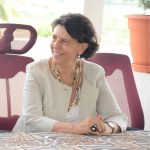
Silvia Caruso has held the position of Country Director and Representative for the World Food Programme (WFP) in Mali since June 2016. With WFP since 1999, Ms Caruso has served as WFP Deputy Country Director in the Democratic Republic Congo (DRC), Deputy Country Director for Mozambique, Deputy Country Director for Madagascar, Programme Officer for WFP in Sudan and Head of Sub-Office in Kuando Kubango and Field Operations Coordinator in Luanda, Angola.
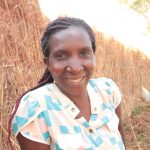
Mainner Chabota Malungo is a Maano Ambassador for the World Food Program. She lives in Pemba district, Zamiba. She is a farmer and this season helped 178 farmers sell 359 tons of produce through the Maano App.
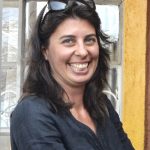
Lara Fossi was assigned to WFP Kenya as Deputy Country Director (Programmes) in July 2018. She started working for WFP as a Junior Professional Officer in Burkina Faso (2002-2004) and has worked as a Programme Officer in Egypt (2004-2008), an External Relations Officer in Rome (2008-2011), a Programme Advisor in Rome (2011-2013) and most recently as Head of Capacity Strengthening in Kenya (2013-2018). Prior to joining WFP, she worked for NGOs in Bangladesh, Honduras and Tanzania.

Emily Hunt Turner is the Founder and CEO of All Square, a civil rights social enterprise centered on a craft grilled cheese restaurant and professional institute. All Square invest in the minds and lives of those impacted by the criminal justice system by providing paychecks, power, and professional pipelines to prosperity. Emily’s background is in law, architecture, and public policy. Prior to All Square, Emily spent five years as an attorney for the Department of Housing and Urban Development (HUD), tackling issues of prisoner reentry and housing segregation. She was selected as a 2015 HUD Emerging Leader, where she spearheaded federal prisoner reentry reform in Washington DC. She currently lives in Minneapolis—a block from All Square’s flagship location—with her wife, Melanie Hoffert.
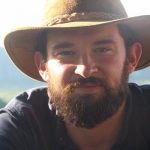
Evin Joyce has been a teacher, tour-guide, soldier and pizza delivery driver, as well as a serial volunteer with humanitarian organisations (Belgian Red Cross, UNICEF France, slum schools in Delhi, asylum seekers in Ireland), before finding work with European Commission’s Humanitarian Department and then the United Nations World Food Programme (WFP).
He worked with WFP for five years in several countries, including Central African Republic, Ethiopia and Myanmar. However his most rewarding work with the UN happened in Zambia where he designed and developed a new app to help rural small-scale farmers sell their produce at more equitable prices.
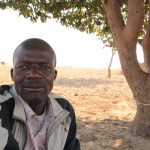
Golden Lwindii is a farmer and businessman dealing with agricultural products and aggregating farm products. He is based in Mazabuka district, particularly Mbayamusuma settlements. He is an Ambassador for Maano and runs a seed bank for his community.
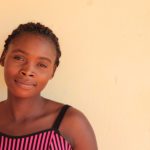
Lizzy Charity Mulengu is a young widow from Lusaka, Zambia. She is a trader at New Soweto Market and works together with her mother.
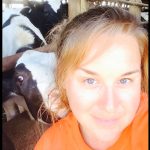
Jenni Tilton-Flood works on her family dairy farm – Flood Brothers Farm – in Clinton, Maine. It is a traditional family farm that has three generations caring for 3400 cows, calves and heifers, including a 1600 head milking herd that has been in the family and in agricultural production for over 200 years. Her list daily list of ‘to-do’s includes mechanic, veterinarian, manager, accountant, scientist, educator and economist. Jenni grew up the daughter of the local John Deere salesman She is an outspoken supporter of all things agriculture and spends her spare moments advocating for agriculture, the importance of the family farm in America and for local communities. Jenni is involved in her community and volunteers regularly with Maine Agriculture in the Classroom, within her local schools and youth sports, the Shine On Cass Foundation and Maine Food Strategy Network.
This episode was made possible thanks to the support of
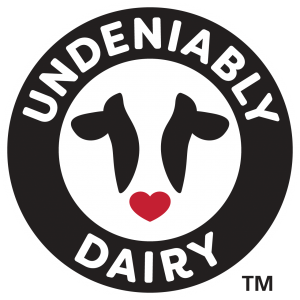
Transcript
Our life is not good. We plant our produce – but we don’t have market.
If we don’t have market for crops, there’s no point in growing for example 100 pounds of cowpeas. Where are you going to sell them.
Its ebay for Farmers. But adapted to the very specific needs of rural smallscale farmers and the traders who want to buy from them.
Maano increased my income because I managed to sell more than before.
Haha – having a smartphone is a good thing I tell you, I didn’t know how good it is.
Edie Lush: This is the Global GoalsCast… The podcast that asks if we can change the world?
Claudia Romo Edelman: This episode we look at the revolutionary power of food …
But first! A shout out to our sponsors – we can’t make the Global GoalsCast without you!
Michelle Cooprider: Our thanks to CBS News Digital and to Harman the official sound of Global GoalsCast. And later in this episode with the support of Undeniably Dairy — we will hear stories from the people who put real, fresh dairy foods on your plate.
Claudia Romo Edelman: Welcome back, I am Claudia Romo Edelman
Edie Lush: And I am Edie Lush. Claudia, would you believe that thanks to Global GoalsCast I am now in a WhatsApp group with Zambian farmers? Anyone who is listening you can check them out in our twitter or Instagram feeds!
Claudia Romo Edelman: Knock yourself out!
Edie Lush: Exactly Mainner and Golden and Charity are all there!
Edie Lush: They are a big part of our conversation today about food – which is of course one of my favourite topics in the entire world. There’s a ton of new thinking around food and how the growing and marketing of food can be harnessed for other economic goals.
Claudia Romo Edelman: Famine and malnutrition remain a challenge in some places. But the closer we get to wiping out famine the more the business of food is being used to achieve other goals. So we want to tell you some stories.
Edie Lush: These are stories that illustrate a revolution in how food and food supply can spur economic development, educate young people, strengthen communities and include everyone in the disruptive benefits of new technology.
Claudia Romo Edelman: Sounds like a perfect fit to our mission of showing that We Are All Human, Edie. Look, by bringing in those Zambian farmers, including several women, we help to broaden the voices that you hear in the media. We have to have more diversity of voices because the world is diverse. And not only that but also it brings the idea that you’ll hear this episode is about inclusion, about bringing folks at the end of the road because by bringing us all up the playing field for humanity goes up as well.
Claudia Romo Edelman: So why don’t we start in Zambia and your conversations about how a mobile app has turned subsistence farmers into e-commerce agricultural entrepreneurs.
Edie Lush: First of all I have to introduce you to Evin, who actually now lives in Ireland. And he invented the coolest app.
Evin Joyce: Hi, my name is Evin Joyce and I worked for WFP as a program officer. I designed and managed a project, a project called MAANO virtual farmer’s market.
Edie : Tell me about that. What gave you the idea for it?
Evin Joyce: I got a job with the World Food Program in Zambia in 2015. One of the biggest challenges they’re facing, farmers, small holder rural farmers. Really smaller scale people right at the end of the road, if you like, the last mile, small scale farmers.
Edie Lush: I called up Evin a second time because I realized listening back to our first interview that I’d never asked him what he meant by a last mile farmer.
Evin Joyce: A last mile farmer in Zambia is somebody who is more than 20 kilometers from a tarmacked road, definitely doesn’t have any automated transport. Uses a plow the same way as plows would have been used hundreds of years ago, drawn by two oxen, has no idea what the price in the market is. Either when it is time to buy seeds or inputs or when it’s time to sell their crop. Because they have no automated transport they have to rely on the one bandjaxed old lorry that’s owned by some businessman and the closest town to bounce down their their dusty, muddy road to them at harvest time and offer them a low ball price to buy their crops, to which they’ll have to accept because they have no other option.
Edie Lush: Mainner and golden are just these kind of last mile farmers. Golden told me that the World Food Program would come to buy his cowpeas for their school feeding program – so that’s one buyer for one crop. Mainner told me about growing enough to feed her family, and sometimes having a little over to sell to one of these bandjaxed old lorries (which actually kindof sounds like my high school car) So anyway they are at the mercy of someone else who has a truck and the knowledge of what their crops are going to bring in…and to use language I learned in Econ 101 they suffer from Information Asymmetry – that’s when one group knows more than another. That was just part of the challenge these Zambian farmers confronted, as Mainner explained to me. I’m going to let her introduce herself.
Mainner Chabota: Okay, I am Mainner Chabota. I’m 42 years. I am married with four children. Three girls, one son.
Edie Lush: Mainner is a survivor and – just like you and me Claudia – as a mother she has a ferocious drive to look after her kids. She lives in a two bedroom house, has an outside kitchen, her house sits at the end of a dirt road 15 km from the nearest town. To feed her family when times were tough she traveled 1000 kilometers to the border with Congo to sell goats
And can you tell me what it was like before you had MAANO?
Mainner Chabota: Our life was not good. We plant our produce but we don’t have market. We were selling on using buckets and we travel from here to town to sell our produce.
Edie Lush: And how much would you sell for example, when you went to town before MAANO?
Mainner Chabota: Maybe five bags 250 kgs. Because of transport it was very expensive for my community to take the produce to town.
Edie Lush: Mainner has now become friends with one of the traders she met on the app – a young woman called Charity Mulengu. They are 224 kilometers apart but the app lets them do business more easily and more cheaply.
Charity Mulengu: I’m 32 years. I was married. husband died in a road accident. I have two children. I work in New Soweto market selling spices and legumes with my mother. With Maano we are buying direct from the farmer. It is better in the way that – I can communicate direct with the farmer.. We agree on the thing which I want. For example if I want five bags of cowpeas. I will communicate with the farmer. Then the farmer will advertise those five bags of cowpeas. When I send the money to the WFP, WFP send the money to the farmers. When the farmer can send those 5 bags to me. With Maano trading is better because I don’t waste much of my time to go to the farms and meet the farmers.
Edie Lush: So that’s the power of MAANO — which means Intelligence in the local language, Tonga…Maano enabled buyers and sellers to communicate with each other and make deals…
Now I want to tell you how Maano got started. To do that lets hear again from Evin Joyce – one of the creators of the app for the World Food Program.
Evin Joyce: So it was to start by getting 15 farmers that I knew from other projects working with the World Food Program in Zambia and bringing 50 farmers from the five traders from different market towns in Zambia together for one week in a classroom in the middle of nowhere, in an old ministry of Agricultural Training School.
Evin Joyce: We had had conversations, that involved the traders going to one corner of the room and writing on a flip chart, all of the reasons they did not trust farmers, that the farmers would hide things in the bags of food to make it weigh more and there will be dirty crops in there. They talk about currency fluctuations that the farmers don’t understand. And then to have the farmers up at the other end of the room saying all of the reasons that they didn’t trust the traders. That the traders have played with the weighing scales that they lie about the price.
We train them how to use key functions of a smartphone, the camera, whatsapp, Google maps and mobile money. Then we put the traders in the classroom in the middle of the training complex which is about the size of four or five football pitches and that was to simulate the traders sitting in the marketplace in a market town, and then the farmers were hiding behind trees and sheds across the rest of the training facility outside. And then they advertise their produce to the traders in the whatsapp group that we’d created. Then afterwards, if the trader was interested, they’d say, yeah, how much are you selling for.
Evin Joyce: And once a price was negotiated in the whatsapp chat and the farmer would share their location, the googled pin, and the trader, just like Uber or airbnb works, would send the money to my phone as the World Food Program. And we were the escrow and we held the money until afterwards. The trader used the Google pin to find the farmer, exchange the produce, check it, and only when the trader was happy with quality and quantity that it was as described in the photo, then we would release the money to the farmer and then you’ve got a sale.
Evin Joyce: By the start of the summer of 2017 when the harvest was coming in, we were ready. And in that harvest season, we helped more than 1,200 farmers sell $50,000 worth of their crops through the system. Its Ebay for Farmers. But adapted to the very specific needs of rural smallscale farmers and the traders who want to buy from them. And those needs are that they are the end of the line, the last mile.
Edie Lush: So now for my other Zambian farmer friend. Golden Lwindii is a 46 year old farmer who lives about 70 kilometers away from Mainner. He runs an agricultural goods shop in his village, a successful cooperative which has a seed bank for poor farmers. He’s got plenty to keep him busy.
Golden Lwindii: My name is Golden Lwindii. I’m married, I’ve got six children, three girls and three boys.
Edie Lush: Oh my goodness. You have your hands full
Golden Lwindii: Yes.
Edie Lush: Tell me how many generations has your family been working your land?
Golden Lwindii: About four generations.
Edie Lush: What was the process like when, when Evin and the World Food Program first brought mono to you? What happened?
Golden Lwindii: The world food program used to come to our place, then we could put the crops together, a sort of aggregation. Then the world food program will come and get the crops. Then maybe after two weeks to one month, that’s when we can get our money.
Edie Lush: And tell me how that changed with MAANO?
Golden Lwindii: When Maano came, you know MAANO is a platform, a platform where buyers meet with the farmers so we have more than one buyer, so there is more chance of negotiating the price. And if you have more buyers, then it means that the price will go up. So this time, for example, if buyer A is offering me 2 Kuacha per kg of cowpeas, then I am free not to accept that price. Maybe there are other buyers offering it for 4 or 5 kuacha per kg of cowpeas. So it has increased our marketing system.
Edie Lush: And how much has it increased your income would you say?
Golden Lwindii: It has really increased our income, before MAANO came, we only used to sell two types of crops, that is maize and cowpeas. But when MAANO came, it attracted a lot of buyers so those buyers had different requirements. Some maybe want to buy cowpeas, others want to buy soya beans, others who’d want to buy maize and so forth. So it has improved our income in the sense that we have the market for every crop that we grow
Golden Lwindii: If you don’t have market for crops, there is no point in growing them, for example, a hundred bags of cowpeas. Where are you going to sell them? So before the coming of this market, people used only to grow before enough for consumption, but after market now people started to grow from, from four bags to about 60 bags from six to 100 bags from 100 bags to 200 bags. So people have got money now, more than ever before.
Edie Lush: That is a big deal. So the benefits of this virtual farmers’ market include more reliable price information, more potential buyers, lower transport costs and reliable payment. And as Mainner told me, she sold more produce which brought her more income.
Mainner Chabota: MAANO increased my income, because I manage to sell more now than before MAANO. So MAANO now is able to buy even if I have a less than 50 kgs, MAANO buys, so Maano increased more. Maybe I can save 45 percent.
Edie Lush: And tell me what crops do you grow now?
Mainner Chabota: I grow, maize, cowpeas, soybeans, bambara nuts, grounds nuts, sweet potatoes, potatoes, eggplants. Before MAANO, we were growing only maize and small cowpeas, only to fed the family.
Golden Lwindii: Before this program came were, we didn’t have markets. So now you can come in my community, people are able now to send their children to school, people are living in the (inaudible) housese.
Edie Lush: One part about this story that I love is that the WFP gave the farmers smartphones – for most of them this was their first encounter with such a device. And beyond using maano for themselves, they also sell on behalf of others in their village that don’t have smartphones. And they end up using them for all kinds of things. Mainner used them to organise for a bunch of books to be sent to her from abroad so she could set up an after-school library for kids in her village. And – they use them just like we all do – to communicate with our friends.
Golden Lwindii: Haha – Having a smartphone is a good thing I tell you. I didn’t know how good this is. You see, like on whatsapp uh, we have so many groups that we are discussing a lot of famine issues. Maybe if you are not on whatsapp, then you can on facebook, you are connected nearly to everyone.
Edie Lush: how does, um, MAANO help those people who don’t have a smartphone?
Golden Lwindii: I am an ambassador for MAANO.
Golden Lwindii: We put the crops together. I get the pictures, I advertise on the platform. Then after that they buyers will be able to see the crops. They don’t need to travel to come here and see the crops. But you can send the pictures using the smartphone.
Edie Lush: Mainner and Golden are early adopters, power users and are now agricultural digital entrepreneurs. They help their neighbors sell cowpeas, or eggplants, or goats on Maano and they take a small percentage of the proceeds for their efforts. They are getting paid to help others in their community.
Evin Joyce: But it isn’t every single person, every single farmer that’s going to be a, an e-commerce entrepreneur. But it is in that group, for example, the first farmers who, who, who were in the pilot in 2017, 20 percent of those farmers sold more produce than the other 80 percent. And in that, in that 20 percent, there were some who were real altruistic enablers of others like Mainner or Golden Lewindii who is already a small businessman but in a cooperative in his village, but who had a community seed bank that worked in the cooperative, in his village that helped the most vulnerable people in his community come, borrow seed, grow a bit of produce, bring it back, you know, they were on the margins. They’re very hard to reach, with any kind of a business, entrepreneurial adventure. But if you can build a reward system into the project as we did with Maano virtual farmer’s market, you can help include them. And then it’s the Mainner Chabotas and the Golden Lewindis, wh have the capacity and are in these really rural areas. That’s, that can help reach the really vulnerable people.
Edie Lush: So Claudia the big idea here is as old as civilization itself. By connecting to a larger world these farmers get the most for their skills and output. This is only the second harvest with the market created by maano, but the changes are clear.
Claudia Romo Edelman: So Edie, this isn’t just about food to eliminate hunger. this is about the power of food to eliminate poverty and spur growth and development
Edie Lush: that is it in a nutshell..in zambia i think its a bambara nutshell..
Claudia Romo Edelman: Laugh.
Claudia Romo Edelman: So when we come back, we will hear about another program that offers food to encourage students to stay in school. And if you are a loyal listener that we know you are to the Global GoalsCast you know how important staying in school is… IRSE DE PINTA go out of school is bad story – I am not sure I want to hear your stories as a student Edie.
Edie Lush: I was a very good student and I never skipped school. But I’ve heard stories about you actually.
Claudia Romo Edelman: We’ll be back in a second.
SPONSOR BREAK – 2.5 min Dairy interview
Edie Lush: So from Zambia to Maine! Our sponsor – Undeniably Dairy – put me in touch with a rather remarkable dairy farmer in Maine. Here’s my conversation with Jenni Tilton-Flood -mother, farmer, activist and community leader.
Edie Lush: So Jenni, the population of farmers, those who are involved in agriculture that feed the world is actually a very small percentage. Some statistics say in the United States, it’s less than two percent feeding everyone else. Tell me what it’s like being a dairy farmer?
Jenni Tilton-Flood: It used to be we lived in a world where everybody either knew a farmer or they had a really deep connection with where their food came from and from whom. In my state of Maine here in the US, it’s less than half percent of the population really spends their time putting food on the tables of our neighbours.
Jenni Tilton-Flood: Our cows eat very well. Some of them eat around 130 pounds of food a day and it’s not just anything we throw at them we don’t just see what’s cheap on the grocery store shelves. We make sure that nutritionists evaluate how they’re doing, how they’re feeling, how they look and make sure we’re giving them all the nutrition they need and we even have new recipes that they’ll give us to feed them and we utilize a lot of the food that we raise here on our own farm for them.
Edie Lush: So on the Global GoalsCast, we are unapologetically pro female, pro girl, pro women. And I’m delighted to be speaking to a female dairy farmer. So tell me what your perspective on women in agriculture is personally. How do you find it?
Jenni Tilton-Flood My dad was the John Deere Salesperson and so I was always in the truck riding around a farm. So I’ve always been around the women of agriculture and it’s always been such a given for me, that women are the people who are driving the checkbook and driving the home and the tractors. They’re, they’re not just raising crops, they are raising our future and they’re doing so by putting food on the table, putting money in the bank and infusing their communities at large with the ability to grow, prosper and better themselves.
So whether you’re talking about the fact that a dairy farm is actually taking their manure and turning it into renewable energy sources and actually powering the homes and communities or you’re talking about the fact that not only did they provide the electricity for the lights at the local ball field, they probably sponsored the tee shirts that those kids are wearing in their community ball team.
We’re also a certified B Corp and that means that we’re committed to social and environmental excellence and we’re really working to benefit in a meaningful way, not just our business but the societies that we touch and the communities we’re involved with and the environment that we live in, work in and depend upon.
music
Claudia Romo Edelman: welcome back…later in the show we’re going to hear from another remarkable woman who also works in dairy!
Ok, Edie, we know from our work here at the Global GoalsCast that education is perhaps the most powerful force for long term change…
Edie Lush: We’ve been banging on about that in almost every single episode. And of course in the short term that means keeping kids in school today. Which is how I got to talking with another world food program officer in Kenya about how food can help to do that.
Lara Fossi: My name is Lara Fossi. I’m the deputy country director for the World Food Program in Kenya. A lot of my work has been focused around the school meals program which is one of our flagship programs.
Lara Fossi: In 2009, the Kenya homegrown school meals program was launched. Local farmers basically produce food that is then purchased for use in school meals. Which maximizes the benefits for students, farmers and the community. And it also encourages dietary diversity and healthy eating habits. School meals aims to provide children with a meal in schools so they don’t have to learn on an empty stomach. The meals promote enrolment. And they also help children stay in school so that they complete can their education. By procuring locally from farmers, from the surrounding communities, school meals are also acting as a stimulus to the local economy.
Lara Fossi: And we actually started a local economy wide impact evaluation study earlier this year that is going to try to capture the full impacts that a program like school feeding can have on the local economy. We do know from cost benefit analysis that have been conducted in a sample of countries that every single dollar invested in school meals has an economic return of between $3 to $10 and this is from improved education and health in school children that eventually leads to increased productivity when they become working adults.
Edie Lush: Lara Fossi describes the power of these school meals in arid part of Kenya
Lara Fossi: In northern Kenya enrolment can be as low as 50 percent in primary school. Many children simply don’t access a school education and many children in those communities don’t have a guaranteed meal every day during the lean season when people’s livelihoods are under stress. In rural Kenya when communities and families see the smoke rising from the fires that are being stoked in the morning from the schools it is a real incentive for families to send their children to school. That smoke is like a signal that there is a meal that will be prepared during that school day.
Lara Fossi: In July this year, WFP completed its handover of the school meals program to the government. So this is now a program that covers over 1.6 million children and it’s fully led, financed and implemented. So run now by Kenyans for Kenyans.
Claudia Romo Edelman: So the World Food Program in 2017 implemented school meal programs across 71 countries that provided more or less 18 million children countries in 60 countries some meals
Edie Lush: that is a lot. Another wfp official in Mali, summed up why feeding kids in school is so powerful….
Sylvia Caruso I’m Sylvia Caruso, Caruso, like the opera singer. I’m Italian, I’m from the south of Italy, from Naples, and I’ve been in posted here in Mali, in Bamako since July 2016 as the World Food Program representative.
Sylvia Caruso I talk about the importance of human capital. What does it mean? We, we try to support children because children are, of course, the future of those communities. We provide either food or cash to the committees in the schools for assuring one meal a day for children in primary schools. And It’s an implicit transfer to the families means the families don’t have to feed those children. But it also helps the children to stay at school, focus better on their learning and make sure they attend the school throughout the years.
Claudia Romo Edelman: Edie, very very powerful stories about food as a crucial tool for achieving the global goals–we may sound like food groupies right? Like totally on WFP’s camp. But the truth is that we’re really impressed by the results that organisations like the WFP gets.
Edie Lush: This was a really remarkable episode for me to work on – in fact as you know this episode was supposed to be about something completely different. We were supposed to talk about famine, about the hungriest people in the world. And the story from Mainner, from Golden, listening to Charity just slightly took this episode over. So I’m afraid we’re going to have to make another episode.
Claudia Romo Edelman: Does this mean we are committing on air to a second episode on famine and all the other areas of food. I mean I’m in – such a complex and rich issue with so many layers. Let’s do it.
Edie Lush: Exactly. So I think we should return to famine, improving harvest yield with better technology, all those issues in another episode.
Claudia Romo Edelman: So one issue that really jumped out at me in this episode, Edie is the power of technology to help people who really need the help. It is the same technology that you would use to get a cab in uber or a date in Tinder. But used actually for good.
Edie Lush: So here is more on that from Evin Joyce, one of the inventors of that remarkable app who worked for the WFP in Zambia.
Evin Joyce: Over the last few years, the last decade we’ll say, and every single sector of rich world economies transformed by digital technologies, financial technologies as well that are essentially enabling people to do old things in new ways with greater efficiency. There’s a similar revolution of digital and financial technologies. It’s about to take place in African agriculture. It’s already started in some places – that will occur. It’s not in question. It’ll sure as night follows day. It’s the same as the way ecommerce has shaken the retail industry. How airbnb has shocked the hotel industry, how Uber has challenged the taxi industry. The same thing will happen in Africa, African agriculture, But what we need to ask is how quickly it’ll happen and who it’ll benefit most. Because if the world is to achieve this zero hunger goal by 2030, then the answer to this, to these questions has to be that It’s going to happen as soon as possible on. It’s going to benefit those further behind first.
Claudia Romo Edelman: Equity and equality, food and nutrition are essential to provide a fair chance to everyone. Without that, there will be consequences that will be very very expensive. Healthcare is increasingly heavy when you don’t act on prevention. When you don’t act on making sure that that 7 billion growing to nine will have access to food, one way or the other as a right. Then you will have to pay for the consequences on healthcare and diseases and it will have an economic and a social consequence and a price for the world. So it is important to look at nutrition. Food is an essential right for everyone. We are all human and we need to be nourished.
Edie Lush: And that’s what we heard in this episode. Mainner with her increased income starts eating better, starts providing more varied food to her kids. And she stops worrying about being hungry. And that frees her to focus on other ways that she can improve her community.
Claudia Romo Edelman: So Edie, his is the end of our first season of The Global Goalscast.
Edie Lush: We will return in january with season two. we already have plans to bring you stories about climate change, diversity and inclusion and, as we just told you, fighting famine in some of the most troubled places on earth
Claudia Romo Edelman: We do want to thank every in our network – all the UN agencies and NGO’s who have connected us to every corner of the world – Edie we have been in every continent – in more than a dozen countries – in order to find the stories that make this podcast.
Edie Lush: I have learned an enormous amount this year.
Claudia Romo Edelman: Oh my god me too.
Edie Lush: Remember Brenda from our first episode Claudia? She crossed the Rio Grande, I’m not going to say the Rio Grande River. She crossed the Rio Grande and became a Google Software engineer. The Swans, who walked to the south pole, relying soley on renewable energy.
Claudia Romo Edelman: 60 days, 600 miles, only on renewable energy.
Edie Lush: I really wish I had so many pennies for every time that I heard you say that. The Palau pledge people, who did that incredible program now when you enter Palau the country you get a stamp in your passport that says you will leave that country better than you found it. They won an award – just after we made that podcast about them.
CRE Right! And just like the Palau pledge, we will make the Global GoalsCast pledge. We’ll commit to having a season two where we will bring you more stories, more people, more voices of the champions that are making a difference. Allowing you to know that you can do your part as well. And that we together can make the difference.
Edie Lush: And before we go let’s hear some more from the dairy folks – this time I spoke with Emily Hunt Turner, a former attorney who runs an restaurant in Minneapolis called All Square selling something I actually can’t say without my mouth watering .. grilled cheese sandwiches. there’s something very special about this particular restaurant .
Emily Hunt Turner: All square is a civil rights social enterprise in Minneapolis, Minnesota and we are centered on a craft grilled cheese restaurant and professional development institute. And we invest in the minds and lives of those who have been impacted by the criminal justice system.
Our Name and our brand is sort of a double entendre. Our grilled cheese are square and we’re also making a positive statement I think to the world that once those, who have paid their debts to society are all square as well.
Grilled cheese has had this really equalizing, warm factor in our enterprise. Cheese is – a bit of an adhesive and I think that that’s something that we really like. Let’s talk about the issue, let’s do something on the ground to provide a solution to it, but let’s also, you know, invite people in to break bread and, share a little warmth.
Edie Lush: So tell me about some of the folks that you work with
Emily Hunt Turner: We have 12 fellows traveling through our 12 month curriculum. I think we have an incredible range of humans with all varieties of backgrounds, expertise. some have college degrees, some don’t. Some had been out of prison for two months, some have been out for years. The grilled cheese restaurant is a way to put money in their pockets, but investing in their professional endeavors as well through the institute and getting to know who they are and what they want to do with their lives. We have two fellows who were studying for the LSAT to get into law school, one who’s applying for a paralegal associate and the rest of them are developing small business plans. The people that are involved in this are really what’s making it the most rewarding for me and I think all of our leadership.
Edie Lush: What’s the most surprising part of your work?
Emily Hunt Turner: The issue that we’re dealing with – the reality is once you have even an arrest that never resulted in a conviction, let alone a conviction on your record, the dreams are really foreclosed. The intention and the hope goes directly to – once I get out of prison or once I’ve had my record resolved, how can survive? How can I find a place to live and find a job and will that even be possible? I don’t know that it will. And dreams are not really on the table. And that’s, that is incredibly disheartening in my mind. And it’s also not okay.
Edie Lush: So I want to bring it back finally to grilled cheese. How did you decide on grilled cheese?
Emily Hunt Turner: With this diversity of perspective, with this diversity of viewpoint and a lot of the polarizing rhetoric that we’re seeing in the world today. Grilled cheese just had a really unifying dimension to it that felt warm. It felt safe and it felt like community.
Edie Lush: This was the first series of the Global GoalsCast and I’m Edie Lush.
Claudia Romo Edelman: And I’m Claudia Romo Edelman Thank you so much for having been with us this year. See you next year.
Michelle: Thank you to our partners….
This episode wouldn’t have been possible without Keith Reynolds, Founder & President of Spoke Media who lent us his ear.
